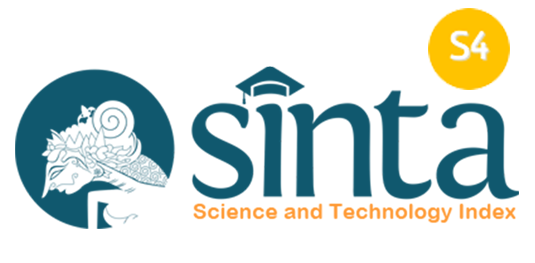Development of a Family-Based Early Intervention Program to Develop Sign Language Skills in Deaf Children
Abstract
Family-based early intervention needs to be provided for children who experience obstacles, this aims to ensure that the obstacles experienced by children can be overcome from an early age. The obstacles that are overcome from now on will have a positive impact in the future development. This research aims to develop a family-based intervention program to develop sign language skills for deaf children. The research method used in this research is the descriptive qualitative method. The subject in this study was a 5-yearold deaf child and the child's parents. The results of this research are an intervention program based on family resources to develop deaf children's sign language skills as a modality for children to communicate with the community and a modality in educational settings in elementary schools. It is hoped that this research can help deaf children, parents, and teachers to develop sign language skills in deaf children.
Keywords
Full Text:
PDFReferences
Bela, M. R. W. A. T., Susetyo, B., Rizqita, A. J., & Khoshsimov, M. Development of a family based early intervention program to improve consonant letter articulation skills in children with articulation barriers. Indonesian Journal of Community and Special Needs Education, 4(2), 103-110.
Edyyul, I. A., Sari, Y. A., & Imanniyah, A. (2021). Peningkatan pengetahuan intervensi dini
(early intervention) bahasa bicaraanak berkebutuhan khusus model layanan akomodatif. Jurnal ABDI MERCUSUAR, 61-67.
Ismet, I. (2019). Intervensi anak usia dini penyandang autis. Journal of Early Childhood Care &Education, 30-37.
Kemendikbud, “Kamus SIBI,” Lembaga Penelitian dan Pengembangan Sistem Isyarat Bahasa
Indonesia, 2020.
Rizqita, A. J. Android-based technology: development of alternative and augmentative misays
communication systems for children with intellectual disabilities. JASSI ANAKKU, 22(2), 81-88.
Rizqita, A. J., & Susetyo, B. (2023). Effectiveness of know-want-learned learning strategies on improving comprehension in deaf students. Edumaspul: Jurnal Pendidikan, 7(1), 1373- 1376.
Rizqita, A. J., Sunardi, S., & Bela, M. R. W. A. T. Development of traluli program of family resourced early intervention for multiple disability and visual impairment (mdvi)
children with fine motor impairment in inclusive school. Indonesian Journal of Community and Special Needs Education, 4(1), 65-74.
Septiani, R. D. (2021). Pentingnya komunikasi keluarga dalam pencegahan kasus kekerasan
Susanty, M., Fadillah, R. Z., & Irawan, A. (2021). Model penerjemah bahasa isyarat Indonesia (bisindo) menggunakan pendekatan transfer learning.
Tantiani, F. F. (2020). Keterlibatan orangtua dalam intervensi anak berkebutuhan khusus.
Jurnal Sains Psikologi , 39-45.
DOI: https://doi.org/10.17509/jassi.v24i1.71224
Refbacks
- There are currently no refbacks.
Copyright (c) 2024 Universitas Pendidikan Indonesia

This work is licensed under a Creative Commons Attribution-ShareAlike 4.0 International License.




